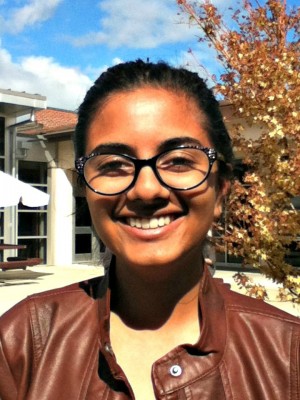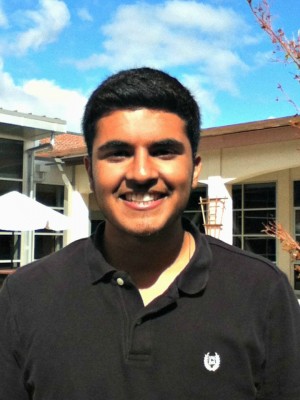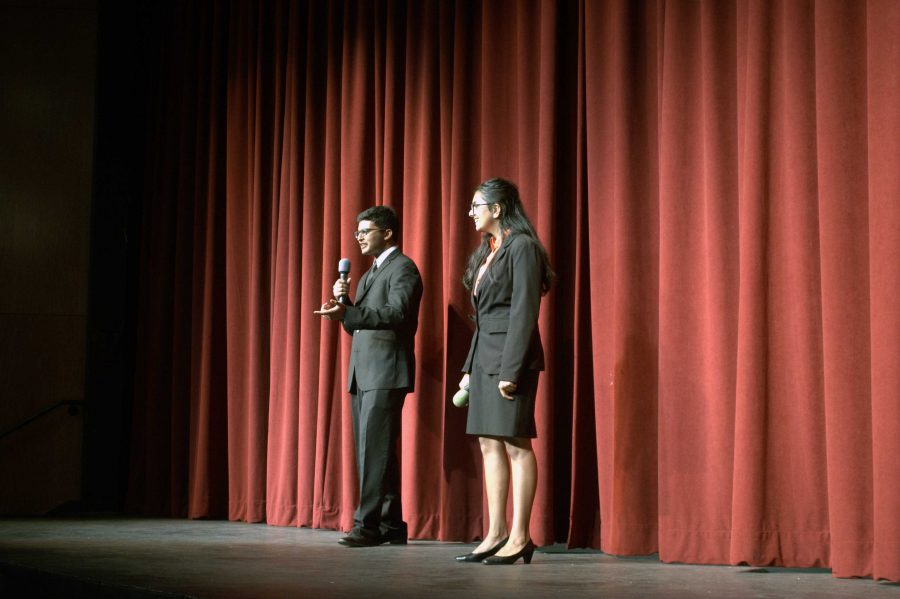Seniors Anoosha Baxi and Abhishek Sharma elaborate on their experiences and responsibilities as Speech and Debate presidents
Each year, the Speech and Debate club hosts a showcase for those interested in the club to learn more about the events it offers. These events include Public Forum Debate, Impromptu, Original Oratory, Domestic Extemporaneous, Lincoln-Douglas Debate, Parliamentary Debate and Humorous Interpretation. Speech president senior Anoosha Baxi and Debate president senior Abhishek Sharma discuss the work that went into putting the showcase together and what Speech and Debate entails.


El Estoque: What is Speech and Debate?
Anoosha Baxi: I think Speech and Debate is basically communication. It’s learning how to take your ideas and express them in a way that other people understand, enjoy listening to and relate to.
Abhishek Sharma: A major philosopher once said that “there is no point in having knowledge if you can’t communicate the knowledge.” Speech and Debate gives [students] the avenue for the transfer of ideas.
EE: What are your goals for this year?
AS: I think our goals are definitely to streamline the process for Speech and Debate in order to make [both sectors] somewhat similar, so the captains will be able to help [members in] both sectors. Our overall goal will also be to educate people both educationally and vocationally, in order to have [members] improve their communication skills.
AB: What our goal has always been and what it still is, is to make people better public speakers — to help [members] take their skills and improve them.
EE: What are you most excited about this year?
AB: I’m just excited that we have such a broad variation of interest. There’s no one sector that seems to be more popular than the other. As a result, we get to see people in all the different parts, not just one specific part that’s more popular than the other.
AS: I think that it’s exciting to see how when [new members] first join Speech and Debate they’re all strangers, but in the end they become family.
EE: What is the most challenging aspect of being a Speech and Debate captain?
AS: Definitely managing your time. [We] have to help the members with Speech and Debate but [we] still have to prepare for [our] own events, and at the same time, [we] have to facilitate all the different things that members do.
AB: I agree. It’s definitely balancing between your service to the club and your own event, as well as school and everything else. And life.
EE: How much time and effort was put into assembling the Speech and Debate Showcase?
AB: It was quite a bit of work, coordinating who was performing — when, and which event — and making sure that everyone was ready for the showcase. There was also the whole logistics part, like booking the auditorium, talking to Drama [for technology] and coordinating who was going to be doing what during showcase.
AS: It took quite a bit of time to get all the reservations for the showcase, and to get our motions passed [by Leadership Council] to be able to promote the Speech and Debate Showcase. There were plenty of times where we had to use our brunch and lunch communicating with the advisors, as well as with the captains to make sure everything was running smoothly.
EE: Do you think the turnout of potential members was promising?
AB: I think so, yeah! I know there was one teacher who offered extra credit, so I was a little bit skeptical as to how many people would stay after the duration of the extra credit. But we had a lot of people stay throughout the entire thing, so it looks pretty promising.
AS: It’s always nice to be able to see and meet the people who show up. Showcase is a great way to see who will definitely join this club.
AB: But I also feel like there are a lot of people who go to showcase unsure whether or not they want to join, and after seeing the kind of events that are offered, they become more keen on joining.
EE: Do you have any advice for new members?
AB: My biggest piece of advice is just let yourself go, don’t be afraid of what other people think and what you think your own boundaries and capabilities are. If you predetermine that, that limits you. So if you just say, “Okay, I’m going to go forth and do whatever I can,” and open yourself up completely, I feel like the possibilities are endless in terms of what you can accomplish.
EE: What is something that few people know about Speech and Debate?
AB: A lot of clubs say, “Oh, we’re a family,” but I definitely feel like Speech and Debate is where I have made some of my best friends, and I do strongly believe that Speech and Debate is a place where you bond. Again, going back to the idea of the communication of your ideas, I feel like Speech and Debate is a safe environment where everybody feels comfortable sharing what they’re thinking and how they’re feeling, because communication is basically what Speech and Debate is. It’s a really safe environment, just to be open and to be yourself.
AS: I think that a lot of the people who think that they can’t be good at public speaking because they aren’t sure if people will like how they speak or what they say, realize by joining Speech and Debate that if you never try and do whatever you can, you’ll never know what you can reach.
EE: Describe Speech and Debate in one word.
AB: I don’t think one word is enough to describe my feelings for Speech and Debate! I guess “communication?”
AS: Family.








